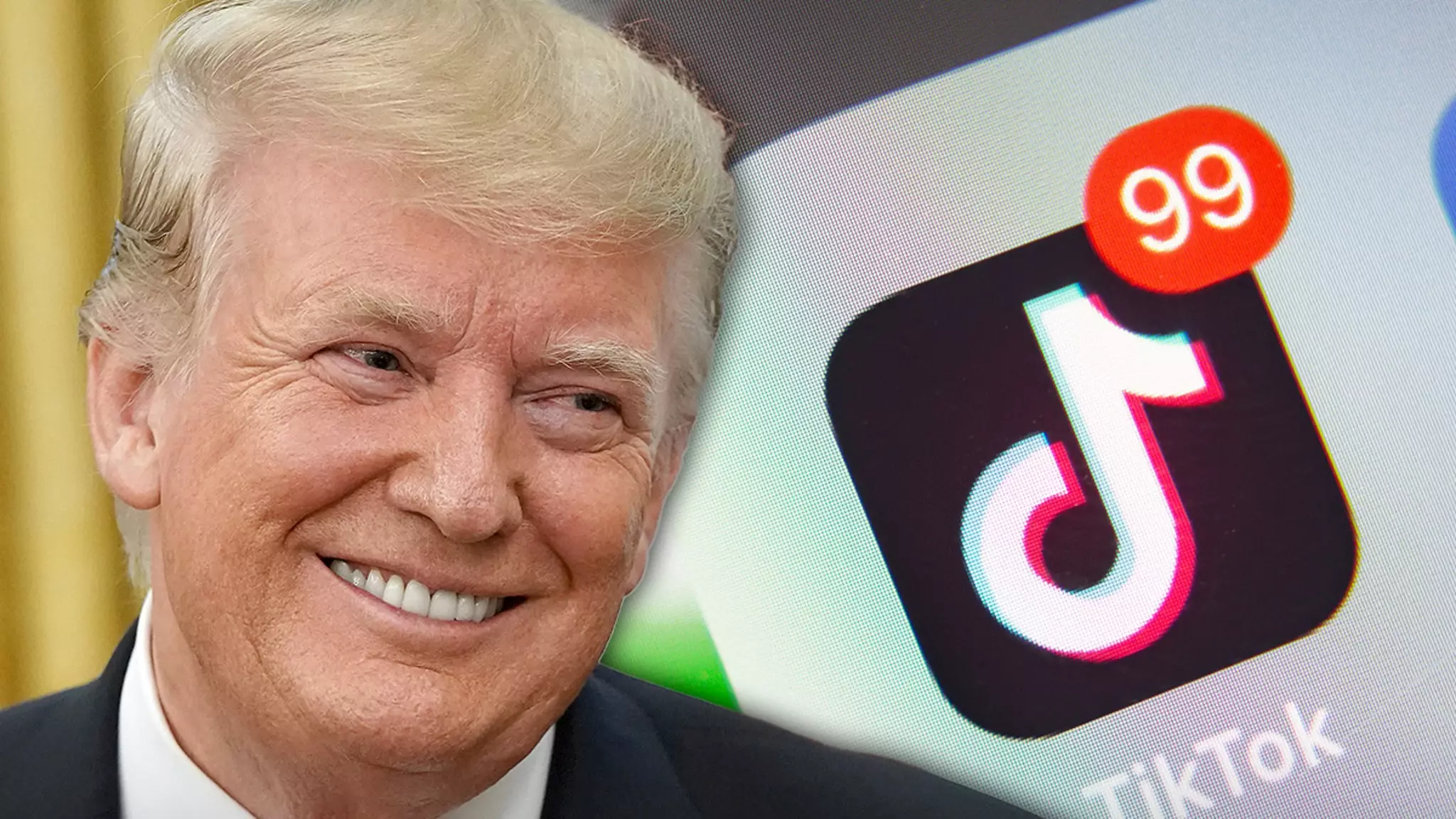In the evolving landscape of social media regulation, TikTok has emerged at the forefront of political discourse, particularly within the U.S. Amidst increasing concerns over data privacy and national security, former President Donald Trump hinted at the possibility of extending TikTok’s operations in the United States for an additional 90 days. This potential reprieve has generated both hope and skepticism among content creators who rely on the platform for their livelihoods. Trump’s remarks, made during a conversation with NBC News journalist Kristen Welker, suggest that while he is leaning towards protecting the app, significant legal and regulatory hurdles remain.
The situation surrounding TikTok is intricate and fraught with political ramifications. Trump’s ability to allow the app to continue operating hinges not only on his personal inclination but also on a series of legal conditions that must be satisfied. For instance, any extension of the ban requires the Chinese company ByteDance, which owns TikTok, to engage in a divestiture process with visible progress. This process must involve actionable agreements that could pave the way for an American company to take over TikTok’s operations in the U.S. Without this concrete progression, Trump’s hands could be tied, making any extension merely symbolic.
Influencers and creators on TikTok, like GloZell Green, are navigating an uncertain reality. With their income and careers potentially on the line, the uncertainty of the platform’s future looms large. The influencer community has voiced its anxieties, with many hoping for intervention from the former president. As a popular tool for communication and content creation, TikTok has not only given rise to new forms of entertainment but has also been instrumental in providing economic opportunities for countless individuals. The prospect of losing such a platform raises serious questions about the balance of regulation and economic freedom.
Public sentiment towards TikTok is also mixed, with some celebrities, including Jason Derulo, openly challenging the rationale behind a potential ban. They argue that TikTok’s value extends beyond entertainment—it serves as a vital tool for communication and creativity during a time when such expressions are essential for many. The ongoing discussions surrounding TikTok highlight the cultural significance of social media while underscoring the challenges policymakers face in regulating technology amidst rapid innovation and societal change.
As the deadline approaches, the fate of TikTok hangs in the balance, and it remains to be seen whether Trump will take decisive action to safeguard the app. While some view the potential extension as a positive move for influencers and users alike, others remain cautious, aware that such decisions can rapidly evolve based on the political climate. Regardless of the outcome, the TikTok saga illustrates the complexities of global commerce, technology, and governance—issues that will undoubtedly shape the discourse in the months to come. In an era where communication occurs at lightning speed, the implications of such regulatory measures will resonate far beyond the digital realm.

